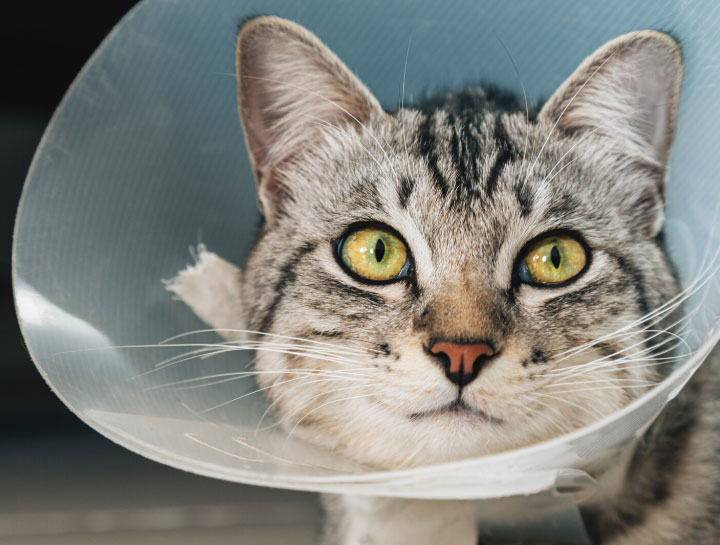Spay & Neuter Procedures
Help your cat live a long, healthy life.
Although the thought of your cat having surgery may seem scary, we’re here to assure you that spays and neuters are common surgeries that are safe, and beneficial for both your cat and you.
How can my cat benefit from sterilization?
Spaying and neutering help cats live long, healthy lives. Having cats sterilized while they’re young reduces their likelihood of developing certain infections and cancers. Plus, it combats overpopulation which leads to the euthanasia of over half a million cats every year.
Other common issues that spaying and neutering help prevent include:
- Expensive and potentially life-threatening uterine infections called pyometras. Luckily, they’re 100% preventable if your cat is spayed.
- Cancerous mammary tumors that can spread to other parts of the body. If you spay your female cat prior to 6 months of age, you’ll reduce the likelihood that she’ll develop mammary cancer by over 90%.
- Testicular cancer in male cats.
- Unwanted behavioral problems such as aggression, urine marking, and roaming.
What happens when a cat is spayed or neutered?
Cats are placed under general anesthesia to perform spay and neuter procedures.
Neuter surgery on male cats is performed through two small incisions after a local anesthetic is applied. No sutures are needed for these tiny incisions. After the surgery, your cat is given a long-acting pain injection and will wake quickly and return to being playful and happy. He will go back home with you later that same day!
The spay surgery for female cats is a bit more complicated, since their reproductive organs are inside the abdomen. The ovaries and uterus are removed through a 2 to 4-inch incision in the skin on the abdomen. Sutures are used to close the abdominal wall and skin, but these are often dissolvable and do not need to be removed. Because this surgery is a bit more invasive, we do keep our female patients overnight so we can monitor their recovery, keep them confined, and check their incisions the next day.
Rarely, your cat may be required to wear special collar designed to prevent them from chewing their sutures for several days. You might notice some redness, swelling, or a little bit of blood surrounding the surgery site. That’s normal. If you become concerned about your cat's health or behavior following surgery, call your veterinarian to let them know. Your cat's doctors will see to it that all your questions are answered, and that your pet is back to normal in no time.
By the way, the day your cat is in our hospital for their spay or neuter surgery is a great time to have them microchipped. We even offer a discount on this service when it is done at this time!
If you have questions about getting your cat spayed or neutered, or you’d like to schedule an appointment, give us a call at (614) 486-7877 or request an appointment online.

